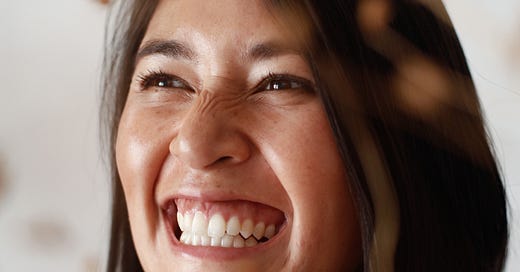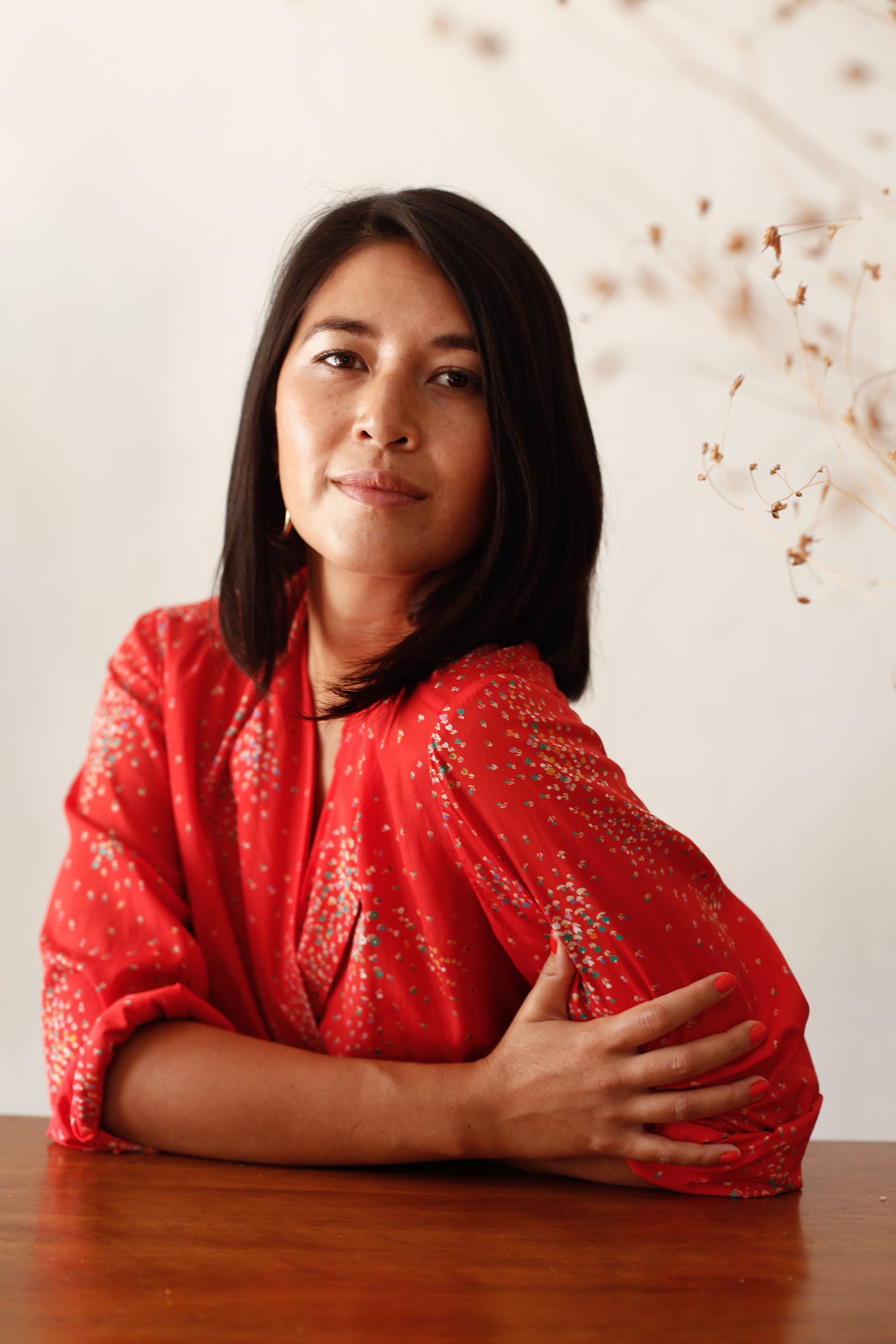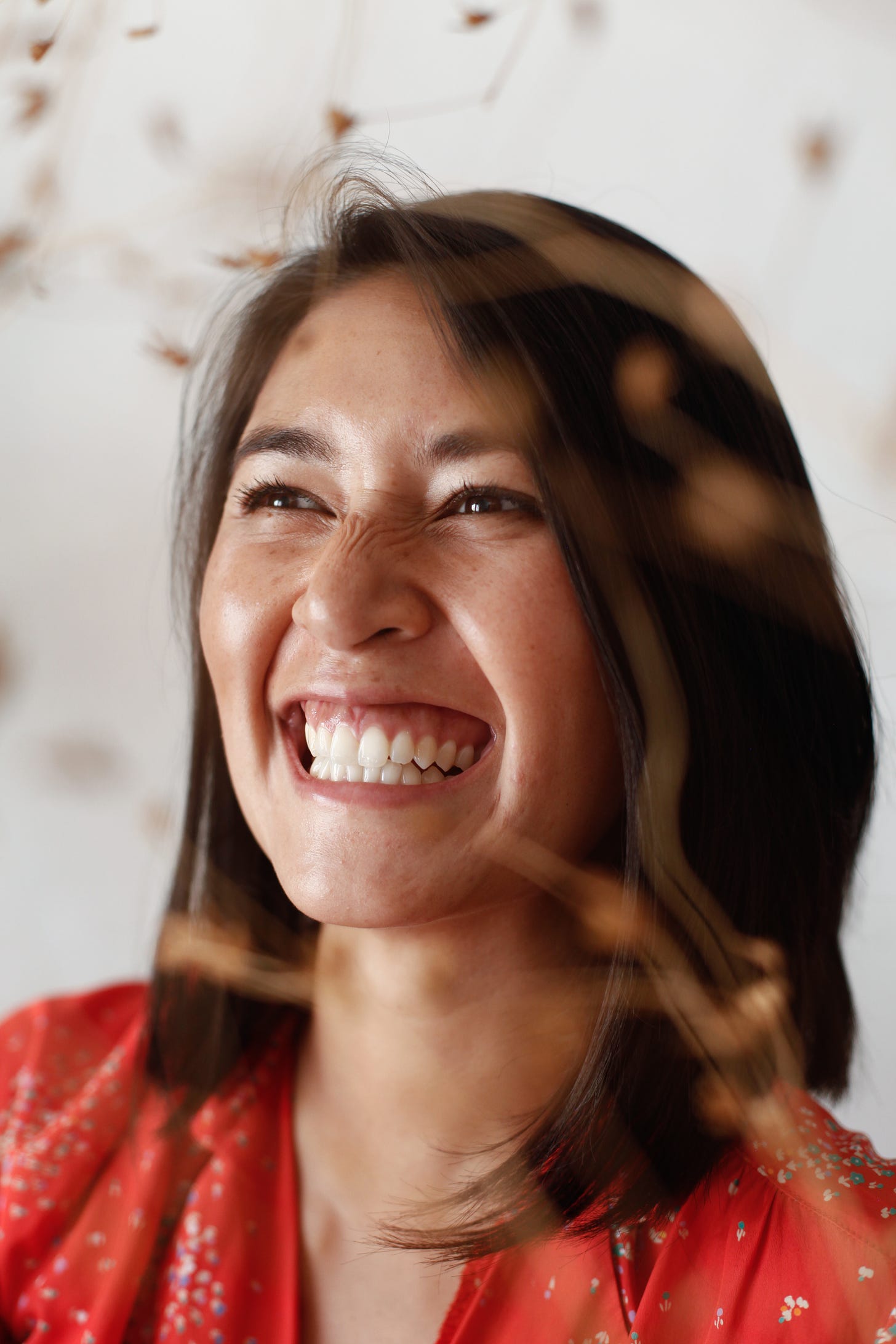Welcome to The Audio Storyteller: tips and tricks for audio producers. Subscribe to get the full list of jobs and training straight to your inbox 💌
We’re coming in hot for this first newsletter of 2024 with an issue that’s unfortunately been on a lot of producers’ minds lately: layoffs. You don’t need me to tell you it’s been rough out there. This edition I’m sharing the perspective of an award-winning producer who was laid off from LAist (formerly KPCC) last year: Megan Tan.
Megan is the host and creator of Snooze and WILD at LAist, where she also senior produced California Love. WILD was named best podcast of 2021 by Spotify and The Atlantic. Megan has also produced stories for NPR and This American Life, and you might have heard her critically acclaimed show Millennial on Radiotopia.
Here she speaks candidly about what it was like to be laid off, how she refused to let it affect her confidence, and what reignited her desire to stay in audio production.
How do you look back on your time at the LAist?
I had a lot of appreciation for the company I used to work with, because it brought me out to Los Angeles. I also met my husband there. And I was able to really develop my voice at this place. They gave me a lot of freedom.
I know for a lot of people of color right after George Floyd happened, it was like all of these companies were all of a sudden hiring a bunch of people of color, or green lighting projects by people of color. There was this intense urgency that the sea had parted, and it wasn't going to be that way forever. So if you could get things greenlit, like get them greenlit now. It was like this flood of people pitching, and also the feeling of like this is it this is it, the only chance that people are going to be interested in this stuff.
I remember we had conversations with people on the show WILD. One woman we interviewed was very optimistic that the door had opened, and it was just going to stay open. So now it’s wild to see all of these layoffs happen, and so many people of color being cut.
When I was at my old job, it did feel like we were in this very magical moment where we got a lot of things done. I was able to make California Love, which is where I learned a lot of my sound design. It also was where I was able to pitch a show and host it. WILD season one was where I was able to do fiction and nonfiction merging together. And then the final show that we worked on was all fiction — at a news organization! We fought for it for many years. But it's not anything that they were comfortable with.
You used the word fought - what kind of fight did it involve?
I don't know if this is specific to the place where I worked, or if it's specific to public radio, but it was very hard for them to make fast executive decisions.
Maybe it does take a long time to make a pilot and get it greenlit – I really don't know – but as a creator, I can make things very fast. We had made this whole show, WILD season one. And then they sat on it. It came out in July 2021, and we didn’t even start pitching the second season until November 2022. A whole year and a bit had lapsed before they wanted to even talk about a second season.
I felt like I constantly had to be proving myself. It wasn’t enough that California Love won this and that award, and topped various lists, and it didn’t matter that WILD season one had all of these accolades. We had to continue to do internal pitching [which made it feel like] we weren’t working for the company. Maybe that’s just how they wanted to approach it. But I felt like I was constantly proving myself.
Even at the very last moment of being at this establishment, I was piloting a new show. I really wanted to be a team player; I was working with a new person who’d just been hired. We created the concept together - the pilot was literally about to be finalized and then they cut everyone. It was crazy.
I will say in hindsight, I don't think I would have been able to make any of those shows anywhere else. I do have a lot of appreciation for the place that I worked.
It's interesting to have experienced this intense event of being laid off, as everyone around you is also experiencing it in their own way. It almost feels like an event happened politically in the United States. And we're all witness to it. WNYC, NPR, Pushkin, Spotify. They just laid off over 100 people at the LA Times; friends who are part of the documentary team over at Disney got laid off. It was like a wave.
What did it feel like to be part of that wave? What’s it like on the inside of that?
Well, I think the thing that's interesting to me is that I experienced it personally, but I'm also seeing how all of these different people are reacting to being laid off, and how being laid off becomes their identity - for some people. Like, “I'm the person who gets laid off”.
And then I've also seen people who are so swayed by the industry that they just get out. They're like, “I'm done with this, I'm out”. And, you know, I totally had that experience as well. Initially I was like, ‘is this a moment to really just blow up my life and go back to school, maybe become a therapist?’
It's been interesting to see the environment of an industry sway so many people. I practice Buddhism, which is all about how to not allow your environment to sway you.
Because being laid off feels like a breakup. I was in this relationship… with a job. You go through all of those emotions: you’re pissed off, you’re super sad, you all of a sudden can’t see your future. Your everyday is shattered. You feel all of that. And then you’re also trying to remember - why was I doing this in the first place? That is your environment.
After being laid off, I was like: this is going to become my biggest benefit. I decided it. And that is based on Buddhism. It’s like you’re creating your future; you’re writing the script of your life. So even if things happen in your environment, how do you continue to maintain your path?
Did it affect your confidence as an audio maker?
You go through phases [after getting laid off]: one day you’re good, the next day you’re crying.
I had actually been working on things outside of that job. I produced a piece with NPR; another with This American Life. I produced a piece with Audible and was working as an editor for different podcasts - and those episodes won awards.
So when I got laid off, of course I had that moment of not feeling valued. But I had been feeling that way at that place of work for quite some time already. I didn't necessarily feel at home at that job. And I was exercising my skills in all of these other ways.
[The other thing was], I wore so many hats at my old job. I was really into serving others and helping people elevate their own voice. I was thrown into so many different situations, where I had to hire people or work with people I didn’t necessarily have the best working relationship with. That meant my character really grew. I really fought to be the best version of myself at that job, no matter what was happening around me.
I was able to really come into my own voice at that job. I had no qualms about challenging people in an authoritative role. I was able to really stand up for myself. So when I got laid off, of course that confidence gets tested because you're human, right? But I quickly was like, ‘No, I'm really good at what I do’.
So what was it that convinced you to stay in audio and not leave the industry to become a therapist?
One beautiful thing about being in this industry for more than a decade is that you make friends. I had a number of people reach out to me immediately, and I was able to pick up one of my first editing jobs. I realized that I was working with people who really valued and respected me. And I really valued and respected them. Then it became fun again.
Right after I got laid off, the first thing that pops into my head is, how am I going to pay my bills? We just bought a house. My dad lives with us. I have some adult responsibilities, that if I'm going to totally pivot careers, it no longer is just me, blowing stuff up. So I made a rule for myself that I was going to say yes to everything.
I was doing tape syncs, I was doing Instagram videos for this agency that reached out to me, I was teaching a class. Like, I just said yes to everything. I used to make six figures at my salary job. And afterwards when I was hunting people down for [freelance] invoices, I was like - this is so little money compared to what I used to make. My husband said, “don’t compare it to the money you were making before. Compare it to $0, because that’s what you’d be making if you didn’t get that invoice.”
The other thing too is that working at a salary job and then all of a sudden being freelance, I realized how complacent I had become. Being freelance is like a direct cause and effect - whatever you put out, you’re going to get back. With a salary job, of course you’re working hard in lots of different ways, but there isn’t that same [sense of] ‘I put in, I get back’.
You said you decided being laid off would become your biggest benefit. Tell me more about that.
In Buddhism, we say everything starts with prayer. When you start with a prayer, it's a victory for your cause. So when I say, “I will turn this into a benefit”, I'm already deciding that it's going to become my biggest benefit. I don’t know what the future looks like – I’m still on the path of this still becoming my biggest benefit.
I’m doing a lot of editing now, which I really love. I'm working with people whose missions I want to advance, and who really respect me as a creator. They want to work with me, I want to work with them. I'm working with this company called Embrace Race, which is a nonprofit that teaches parents how to teach their kids about race. I’m helping edit their first podcast. There’s another show with PRX that I’m helping edit, and I just got approached to write a book.
It’s this moment in my life where I don’t know what it’s going to look like. It’s all about planting seeds and not knowing where they’re going to go. I'm down to have dreams that I don't know exactly how I'm going to achieve.
Having a positive outlook and not being swayed by the fact that I got laid off is the type of life that I want to live. Also there’s an energy that comes with feeling bad about yourself – I was like let me just transform that super quick. Because I don’t have time for that, and I don’t want to attract that.
Is there anything you would say to other producers who have been laid off recently?
Figure out what you want to do on a daily basis. What do you want your day to look like? From there, get creative about how you can exercise those skills.
You also have to regain your confidence. One way I learned to regain my confidence many, many years ago, was every time I would order some food, I would be like, ‘that was a great decision’. I would like high five myself, right? Because even the small decisions you're making every day, you are actually listening to your life right now. You just build yourself up again.
I say to myself, I'm in rhythm. Even though I can't see the future, I'm going to take action in the present to create my future. And I'm not going to let these kinds of events totally sway me. Because then it's almost like I'm giving up the power of my life to all of these external forces. And I really just don't want to live like that.
Jobs
❤️ Supervising Producer ~ Lemonada ~ Los Angeles
❤️ Senior Producer, Rapid Response ~ Wait What ~ remote
❤️ Writer, narrative true crime limited series ~ Wondery ~ remote
Training and awards
🌹 Story structure: murder isn’t inherently interesting ~ Radio Boot Camp class ~ 24 February
🌹 The Whickers podcast pitch ~ £5,000 production award ~ deadline 25 February
🌹 ProPublica Investigative Editor Training Program ~ deadline 11 March
🌹 Getting the most out of Reaper ~ webinar ~ 22 March
🌹 Collaborative Narratives: A Podcasting Workshop with Sarah Geis ~ Online ~ 23 March
Thanks your support of The Audio Storyteller! It turns out that my work / motherhood / life has disrupted the newsletter schedule quite a bit, so I’m officially switching to once-a-month missives. Talk to you in March, and in the meantime let me know what you’re working on and listening to 💌






wow, this was a really gratifying read. thanks, megan and clare, for sharing these insights.